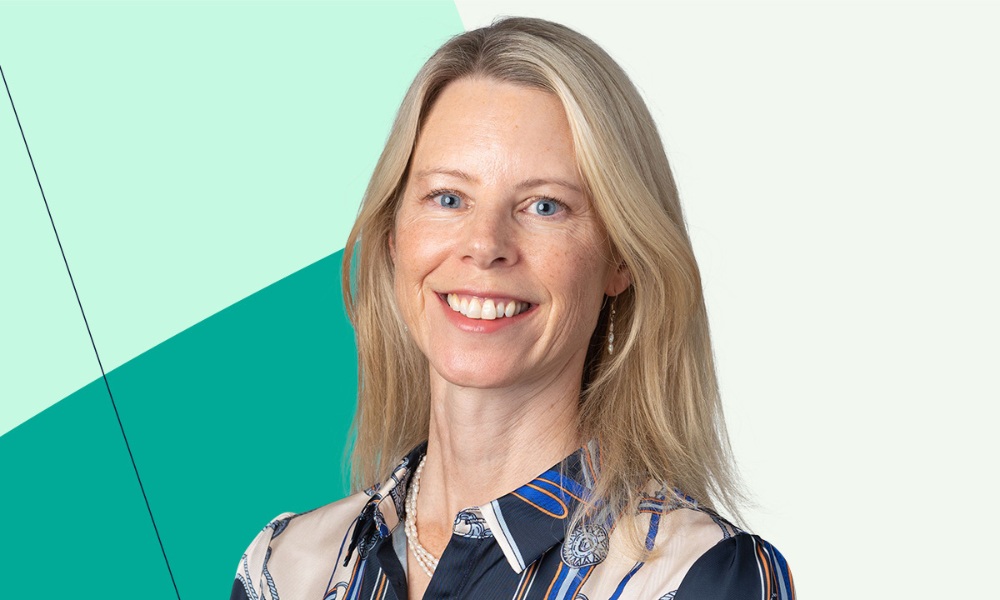
Victoria Watts has gone from France and Germany to London – and now to NZ

For Victoria Watts, practising law was a chance to satisfy the travel bug in her. Indeed, the IP star would end up going places – studying in Europe, working in the UK, and finally making it to New Zealand, where she joined up with AJ Park in 2005.
Earlier this year, Watts was elevated to principal, and in this May interview with NZ Lawyer, Watts discusses linguistics as well as why she’s keeping an eye on Australia’s Right to Disconnect bill.
I initially chose to practise law as a chance to travel the world – and to be involved in challenging and exciting work. This worked out pretty well, as I studied law in both France and Germany, and then worked in London and Paris, before eventually settling in New Zealand. Intellectual property is the perfect vehicle for mentally stimulating work, and is genuinely global – so I get to collaborate with amazing colleagues and clients.
Being used to communicating with clients in different languages, I’m particularly excited about our upcoming Plain Language initiative. It will enhance our communication with clients, making it even clearer.
Coming from Europe, I recall times when law firms seemed to take great pleasure in making the law seem difficult and out of reach for clients. It’s great to see the changes since then, and plain language has been largely behind it. Our goal with the Plain Language initiative is to ensure that clients easily understand our messages and can confirm their instructions without needing further clarification. This should further enhance our client service.
In keeping with trying to make the law and our advice more accessible, we’ve just introduced our Client Portal, a new IP rights management platform. It’s designed specifically for smaller clients who don’t have their own in-house systems. The portal offers several benefits to these clients, allowing great visibility of their portfolio in real time.
Overall, our Client Portal should give clients better control over their IP portfolio along with valuable insights into their industry and competitors. It’s a fantastic addition to our client service!
We’ve also implemented a new policy regarding our use of artificial intelligence (AI). Our group company, IPH, has been developing and testing some in-house AI tools, and I’m excited to see these tools being used more at AJ Park. While AI will undoubtedly impact our work processes, I think this is a great opportunity to embrace the opportunities that greater automation can bring.
Learning that asking for help is a sign of strength, not weakness, and accepting help without shame. In the past, I used to avoid asking for help when I had questions or felt overwhelmed. Now, being part of a strong and capable team has shown me that we can accomplish much more together than individually.
Initiating a conversation and seeking help may feel daunting initially, but in a supportive environment, it can empower and motivate everyone involved.
Getting as close to clients as possible and recognising that clients want practical answers, not legalese. I sit across two professions, as I am a trade mark/patent attorney and also a qualified lawyer. This means I get to deal with legal issues, but am also surrounded by scientists with real insight into the technology our clients are dealing with.
I really feel that opportunities can be leveraged by these two professions engaging more. This will allow us to learn from colleagues on both sides, to collaborate for the benefit of clients, and to expand our networks to even more interesting and knowledgeable people.
People are not willing to work in the same way anymore, especially after the Covid environment. While firms had no choice but to embrace flexible working during the pandemic, some are now reverting to the “old way of working” - which I think could prove to be problematic. At AJ Park, we offer flexible work options that work well for everyone. This lets us access a much larger pool of expertise and talent, and keeps our employees happy.
Australia is introducing the “Right to Disconnect” bill, which I think is an interesting one to watch. While we are yet to see how it plays out, the “right to disconnect”, meaning that employees could refuse to respond to emails outside of their working hours, could signify big changes for professional service firms and the profession as a whole.
Even without an equivalent law in New Zealand, we do need to prioritise mental health. The legal industry can be incredibly demanding and high pressure, and it’s imperative that we are looking out for anyone who may be struggling and provide appropriate support. I’m proud to say it’s something we make a point of prioritising at AJ Park.
And finally, from a client perspective, firms need to consider their pricing structures and reflect on whether traditional approaches remain fit for purpose. Many clients are now looking for alternative pricing models and an agile service offering. It’s certainly an interesting time to be in professional services!